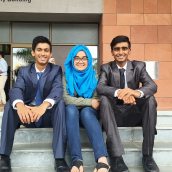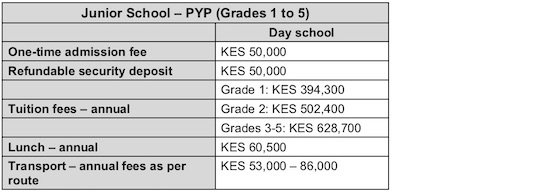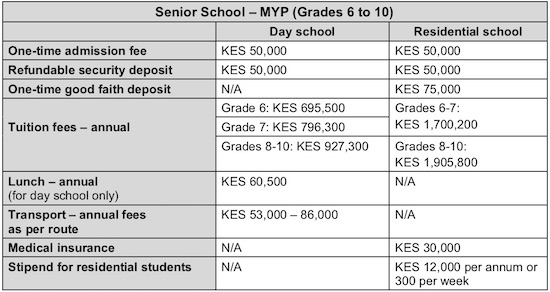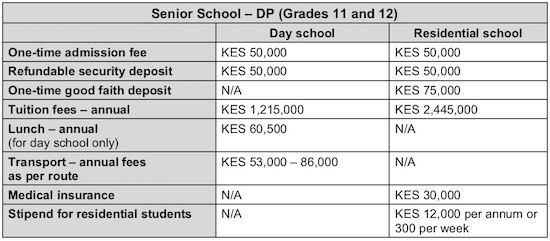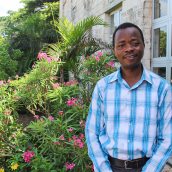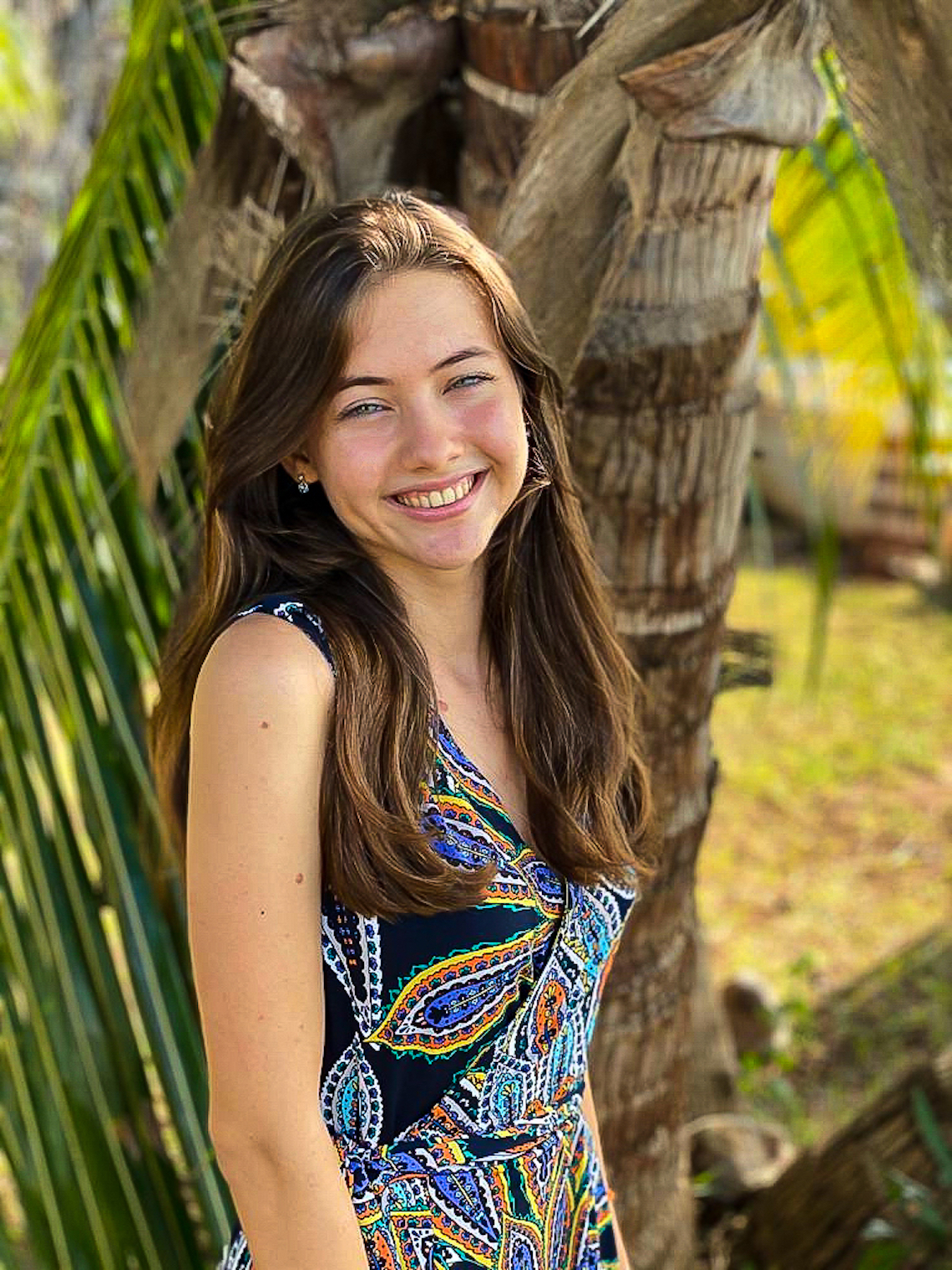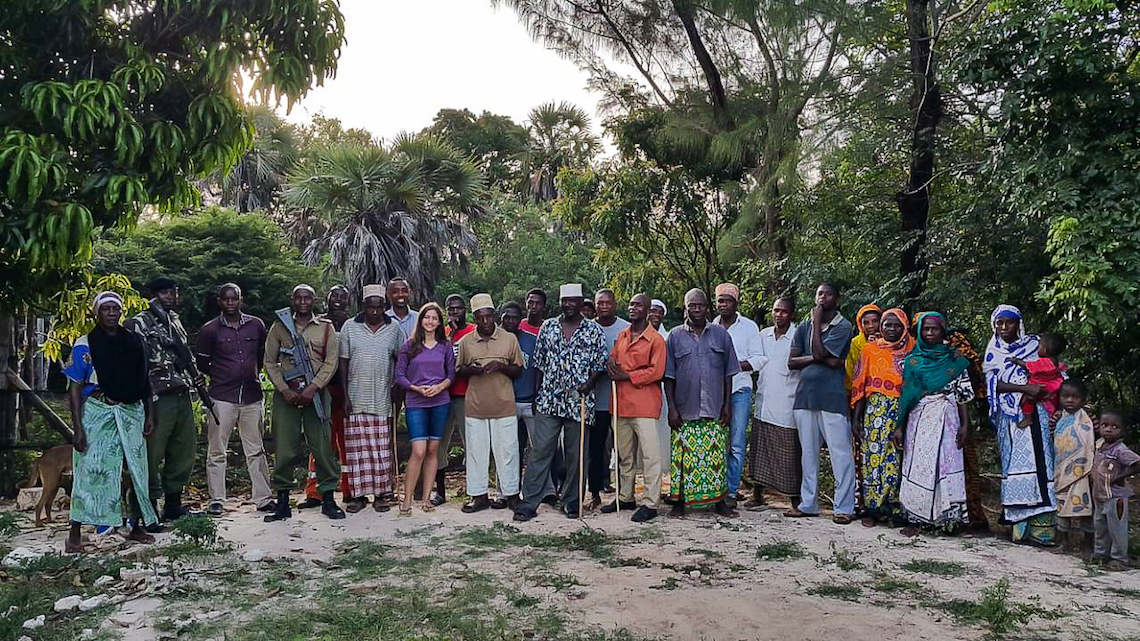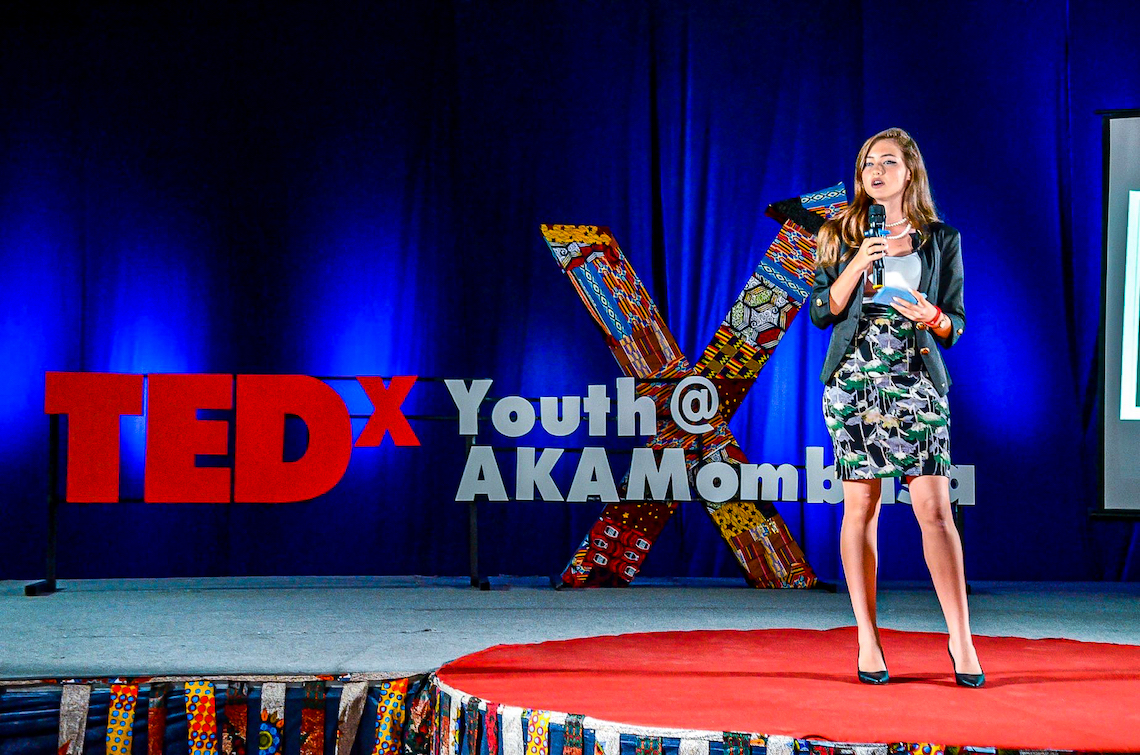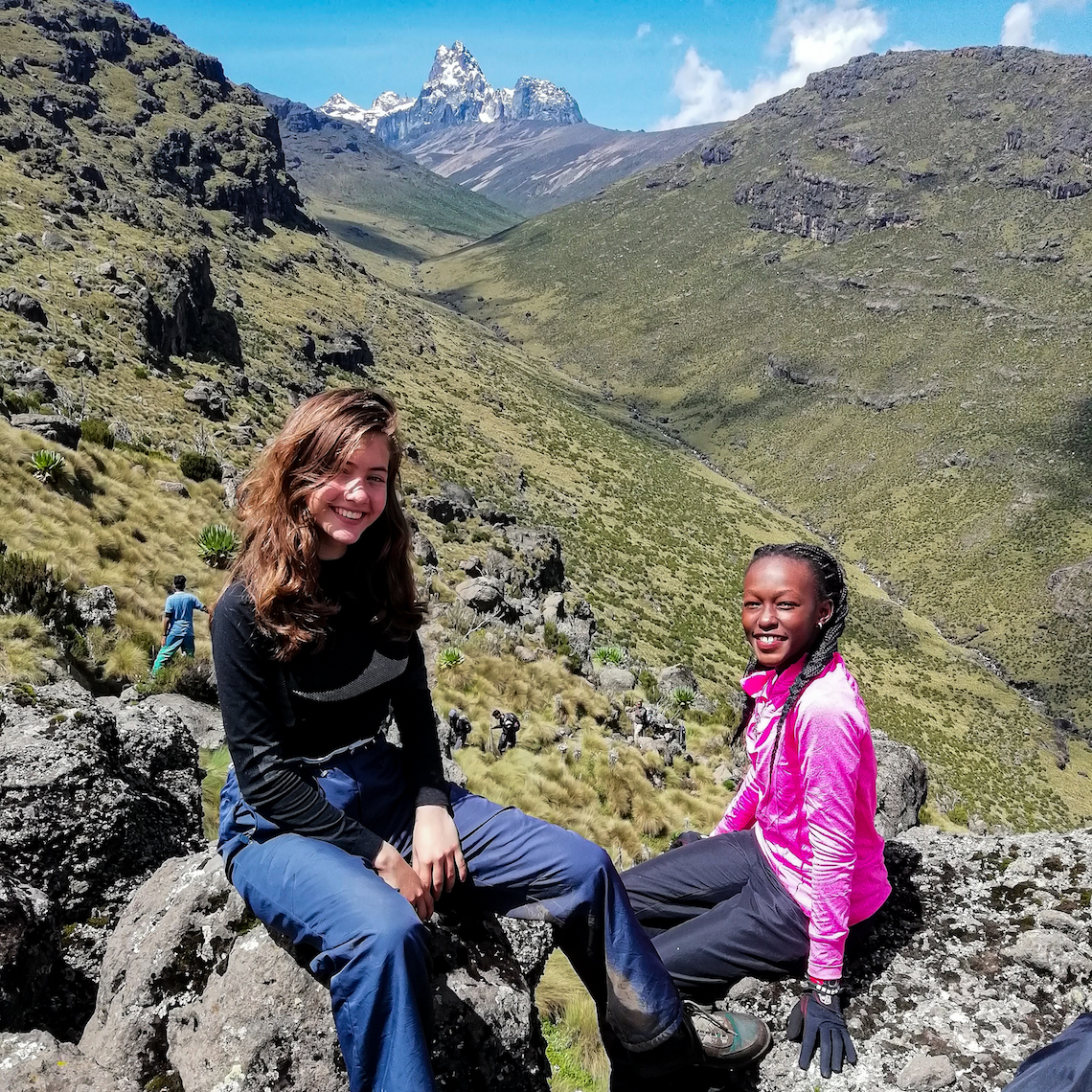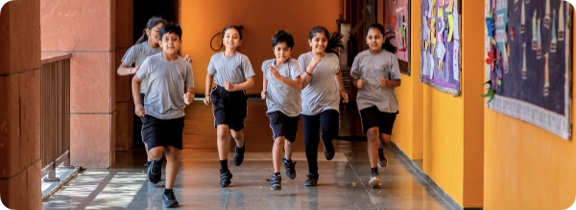
Fee Structure
Please download the FEE STRUCTURE ACADEMIC YEAR 2025-26.pdf.
NOTES:
- A one-time, non-refundable admission fee is payable for students enrolling for the first time. The admission fee must be paid to secure a place for a child at the Academy. This cannot be deferred or paid for in instalments. The due date is one week after the offer has been accepted.
- A one-time refundable security deposit is also payable upon acceptance of admission and should be paid with the admission fee mentioned above. It is refundable when a student leaves the Academy as long as the required notice has been given in writing and “No Dues” clearance is obtained from the Academy. No interest is payable on this deposit.
- A Sibling Discount of 5% on tuition fees will be applicable for second and subsequent children.
- The total fees for the academic year may be paid in full with an early-payment discount of 3% on or before 31 July 2025.
- The fee is payable on due dates as mentioned in the invoice/memo for the services.
- The Academy will charge a monthly surcharge of 2% on outstanding dues older than 30 days. If the full fee that is due is not paid within one month following the deadline, the student will not be allowed to attend classes or participate in other activities undertaken by the Academy.
- The Total Fee includes course fees, use of essential course books, library books, IT and science laboratory equipment, and certain classroom supplies.
- The parent may need to provide a suitable laptop for Senior School students. The laptop cost may typically range from INR 30,000 to INR 50,000. Additionally, uniforms, optional trips and activities for Senior School students may incur extra costs estimated to be around INR 35,000 annually.
- Exam Fees for the IB Middle Years Programme and the Diploma Programme will be billed separately based on the actual fee issued by the International Baccalaureate Organization (IBO).
- Parents of returning students will be invoiced four to six weeks prior to the new Academic Year.
- The Academy does not accept cash for fee payments. All payments must be made by Direct Bank Deposit, Bank Transfer, Cheque or Demand Draft, even if the payment is being made by a third party such as a sponsoring organisation. Parents must provide the Finance Office (finance@agakhanacademies.org) with a hard or electronic copy of proof of payment showing the student's full name and the student identification number within 15 days of fund transfer for issuance of the payment receipt. The absence of this information may delay crediting the fees reflected on your account in our system.
- Parents are responsible for ensuring that the fee payments are made into the correct bank account of the Academy. In the event of any change in bank account details, the changes with the new payment bank details will be communicated to parents in writing via official communication from the Academy.
- If a student wishes to leave the Academy, one term’s advance notice of withdrawal must be given in writing, or one term’s worth of the annual fees will be due and payable. School clearance will not be possible until all outstanding dues are settled in full. Please refer to Point #13 in the linked PDF document at the top to see the details for withdrawal.
- The Academy reserves the right to withhold results, school certificates, transcripts or any other information and/or documents until all outstanding dues are settled in full.
- Admitted students who demonstrate financial need and duly fill in and submit the application along with required supporting documents within the stipulated time can be considered for Financial Aid. An independent Financial Aid Committee is responsible for reviewing and approving any student's request for financial aid. For further information, please contact us at faapplication@agakhanacademies.org.
- Please note that financial aid is available only for students in Grades 6 through 12; students in the Junior School (Grades 1 to 5) are not eligible to apply.
- The above terms and conditions may be modified or new terms may apply to reflect changes in the law or our services. For further information, please contact us at admissions.hyderabad@agakhanacademies.org.
- Please note that the Fee Structure is subject to annual review.
Student Exchange 2019

Student Exchange 2019: Photo Galleries
Photo Gallery: AKA Mombasa students visiting AKA Hyderabad
Photo Gallery: AKA Hyderabad students visiting AKA Mombasa
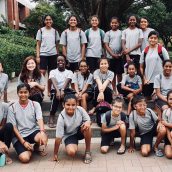
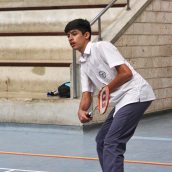

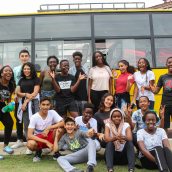
Join our students on their exhange journey by taking a look at our first photo gallery.
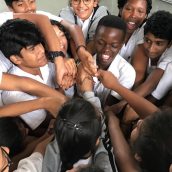
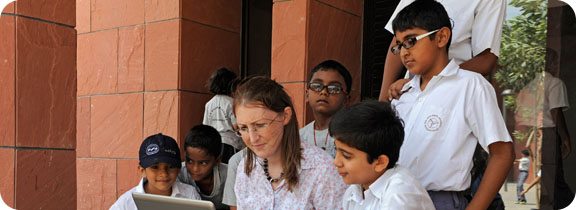
Teacher Resources
The Aga Khan Academies work to develop curriculum units that are relevant to cultural contexts of schools in the developing world. These resources develop students’ understanding of the Aga Khan Curricular Strands – Ethics, Pluralism, Cultures (with an emphasis on Muslim civilisations), Governance and Civil Society, and Economics for Development.
Resources are freely available for schools to download and use for education purposes, with appropriate attribution. We would welcome feedback about your experiences using these resources in your school. If you have comments, ideas for improvements, or would simply like to know more about our work, please send an email to: curriculum@agakhanacademies.org.
The Aga Khan Trust for Culture
The following units have been developed as part of a collaborative project between the Aga Khan Academies and the Aga Khan Trust for Culture. They follow the guidelines for IB Middle Years Programme (MYP) units, but can be used in any curriculum.
Parks and Gardens as Sanctuaries: An interdisciplinary unit for MYP1 students bringing together learning from language and literature or language acquisition (Phases 3-5) and the arts.
- Teachers' Guide
- Companion Slides
- Case Study (English language acquisition)
- Case Study (English language and literature)
Evolving Identities and Navigating Cultures: A unit to promote student well-being, which could be used as part of a pastoral or PSHE programme in MYP2.
Musical Expression is a Universal Feature of Human Experience: A music unit for students in MYP4 or MYP5.
Treasures of the Silk Routes
Dania Quadri (Class of 2014): Giving back as an alumna
“Being part of an open-minded community that encouraged challenging what we were taught, the willingness to accept one another and inspire each other to grow constantly, was very refreshing. I credit these experiences for much of whom I am today.”
– Dania Quadri, Class of 2014
She was also instrumental in helping to organise the Mental Health Awareness Week (MHAW) in September 2016.
“As I aspire to be a doctor, I feel that it is necessary to acquire experience in a role that demands care, patience and a great deal of understanding,” she explains. “I knew teaching and organising the MHAW would contribute to my personal growth and career aspirations but it would also allow me to give back to my school – something very important to me.”
Through MHAW, Dania was able to contribute to reducing the stigma associated with mental illness within the Academy community.
“As a student myself, I know how hard it is for students who are mentally unwell to cope with studies and social life at school," she said. "I wanted to spread awareness about it being perfectly normal to feel mentally unwell, to know the difference between clinical illness and just a rough emotional phase, and to encourage students to seek help and advice if they are feeling low.”
Her internship made her realise she was more passionate about education than she thought. She particularly enjoyed the responsibility an educator has in developing a student’s personality and knowledge.
“As a teacher, it was interesting to observe school from the other side," she said. "Spending time with all the teachers made me realise how much they actually care for their students. The support is incredible at the Academy and different learning abilities are not only understood but truly valued.”
Virtual Open Days
Visiting a school is usually all about the people; being able to get a sense of the teachers who will be guiding and nurturing your child, seeing the current students and trying to envisage your child amongst their new peer group! Whilst that is not possible at the moment due to the global pandemic, we at the Aga Khan Academy Hyderabad still very much want to meet you. As a group, we have put together a video that will allow you to meet the team and gain further information about the school through the website.
Our Virtual Open Days (VOD) aim to give you an introduction to the Academy, but we also understand there is plenty left to discuss beyond the information provided and the staff is eagerly looking forward to speaking to you in person. The event is being hosted by the Admissions team and each session is divided into a virtual tour of the school hosted by our students and members of staff, followed by a Q&A with our leadership team.
Register to join one of our upcoming Virtual Open Days!
Click here to express your interest to be a part of our Virtual Open Days in February. Our Admissions team will get back to you when the dates are confirmed.
The Aga Khan Academy Hyderabad is a special place where a sense of community and family runs through everything that we do. We hope this Virtual Open Day gives you an idea of our vision, our people and our campus. We look forward to welcoming you in person in the near future. We hope to see you soon!
For further information, please feel free to reach out to our Admissions team
Naheed Bardai's closing remarks at AKA, Mombasa's Class of 2015 graduation
The Cabinet Secretary of Education for Mombasa County, Mr. Tendai, Dr. Bentil, Mr. Bhatia, Mr. Otieno, Graduates, Parents, faculty and invited guests, thank you for taking the time to grace this occasion.
Dr. Bentil, thank you for your inspirational words and guidance, especially towards our graduates.
Joshua, thank you for your insights into the operations of our graduating class, including the things we didn’t – and I’m not sure I really wanted to know!
It is now my pleasure to present the The Aga Khan Academy Award of Excellence. The Aga Khan Academy Award of Excellence is given to the most outstanding male and female student in DP2 each year. This award is given to the top overall male and female contributors to academics and student life, and who best exhibit the AKA Learner Profile upon graduation in DP2. The award considers students’ achievements and contributions in DP1 and DP2. I will start with the female recipient.
Courageous, charismatic and pluralistic, the female recipient of the Award is a role model student. Academically, she is an inquirer with an insatiable thirst for knowledge. With a community-driven outlook and approach, she has managed to find the right balance in pursuing activities that benefit the community while also enabling her to grow. As an accomplished scientist, she earned a gold medal in an international science competition presenting her innovative low-cost water purifier that she carried through from her MYP Personal Project. As a celebrated artist, she has organized dance recitals and written and acted in her own play. Having recently suffered from a difficult illness prior to and during the examination session, she demonstrated the heart and resilience of a true leader. Next year, she will be pursuing her passion in Theatre at New York University in New York on a full tuition scholarship. Please join me in congratulating this year’s female recipient of the Aga Khan Academy Award of Excellence, Karishma Bhagani.
Passionate, socially conscious, and scholarly, the male recipient of the Award is one of the most inspiring students I have had the pleasure of working with. The owner of a true growth mindset, he is never satisfied with the status quo and is always looking to better himself in every way. His deeply held belief in equity and social justice manifest itself in all that he does. Coming from modest means and part of our Talent Identification programme, his humble and unassuming style makes him approachable and an inspiration to all, making us believe that one can overcome life’s obstacles. In many ways, this young man has been the maker of his own destiny. A dedicated researcher and scientist, this student completed his Extended Essay in World Studies looking at the relationship between agricultural productivity and household income in his local community. In addition, he placed third in an international science competition for his work in creating a generator that could produce 50 watts of clean energy using magnets. A former Student Representative Council executive member and current Dorm Captain, he has been a big brother to many. Receiving a full Mastercard Scholarship to study engineering at the University of Toronto, please join me in congratulating this year’s male recipient of the Aga Khan Academy Award of Excellence, Maxwin Ojwang.
Graduates, you have just conquered one of the most important rites of passage – sitting for two hours without sending a tweet, making a comment on Facebook or posting a picture on Instagram. Parents, this is clearly evidence that your sons and daughters are capable of unplugging while at home over their much deserved break. Graduates, you will soon have the chance to get caught up on all of your favourite series, play video games until your fingers fall off, and watch viral videos of strange animals doing strange things. You deserve this break, just as you deserve this ceremony in your honour. Just yesterday, these graduates surmounted a real milestone – their IB examinations. Graduates, I have seen you study harder than any other cohort I have known; I have seen you band together as colleagues and friends to support one-another in times of need; I have seen the joy on your face when you open that exam script and see the exact question you were hoping for; I have seen you curse those exact same exam papers; and as a class, I have seen you consume the most amount of coffee and sugar of any graduating class. Graduates, this is one of many rites of passage that you will undergo in your life. And as you go off to be a leading economist or entrepreneur who helps to find a way to bridge the poverty gap or solves Greece’s economic crisis, or that innovative scientist or engineer who finds a solution to our most pressing health or energy concerns, or that artist who helps us to reflect on our own identity, or that politician striving to create a more inclusive society – be humble and be brave. Be humble and be brave.
The greatest challenge that I believe you will face is not writing that university exam, getting that dream job, or finding a partner – the greatest challenge you will face will be challenges that test your moral compass – that test your integrity – that test your character. Will you have the capacity to forgive even when someone has let you down or stabbed you in the back? Can you have the patience and intellectual humility to invite multiple points of view, even if they disagree with your own? Will you be a good parent to your child? Will you be a good son or daughter to your parents?
To make matters even more complex in the challenges to your character is our ability to operate ‘in cognito’ online. We can do things through an email, text, tweet or photo that will self-destruct in 5 seconds that we would never dream of doing in person. While this relatively new way of relating to one-another has tremendous potential, we cannot hide behind the anonymity afforded to us so easily through technology, holding ourselves to different ethical standards.
That being said, if the last six years that I have had the privilege of working with many of you are anything to go by, I know that your moral compass is strong. Having spent a significant amount of time with all of you, I trust that the future of our communities and countries are in very capable hands.
Ladies and Gentlemen, these graduates are stars and are outstanding in so many ways. 9 of them helped to form our first Year 1 class in 2003, and many more have joined along the way. This cohort formed our first residential group in 2009, and marked the beginning of our robust Talent Identification and Financial Aid programmes. These graduates were the first to go through our mentorship and leadership programmes in 2011, and formed our largest ever Diploma class in 2013. Your combination of intellectual fervour, pursuit of social justice, excellence in athletics, creativity in the arts and inspirational leadership has left an undeniable mark on this school. Indeed, your success is all of our success, and other than your parents, there is nobody more proud of your accomplishments than your teachers. From the PYP to MYP and DP, these inspiring educators have helped to nurture your creativity, sharpen your critical thinking, develop your passions, and hone your moral compass. Graduates, please join me in thanking all of your teachers. I would like to thank all of those who have helped along the way – the nurses, kitchen staff, IT department, maintenance teams, drivers, admin staff and librarians. Without you, none of this would be possible.
To conclude, I would like to quote His Highness The Aga Khan from a recent speech he made in Nairobi at the Aga Khan University graduation. He said, “This is not a Farewell Ceremony. In fact, an event like this is often called a “Commencement”, since it marks the beginning of so many great new stories. We hope that you too will share your stories with us, in the days ahead.” On that same note, I would like to acknowledge and thank our many alumni who have joined us today for this ceremony.
Once again graduates, we wish you well and congratulations. Thank you.
Joseph Munyambanza: The story of a conqueror
As we sat for our lesson on a sweltering Tuesday afternoon, there was anticipation for the upcoming week-long break, obstructed only by the last lesson of the day. We sat for a while in a lazy stupor before our speaker arrived humbly apologising for his delay. Joseph Munyambaza was calm and composed as he began his initial talk on disparities of living. Despite appearing to be an average man who started by talking of ordinary sundries, he informed us that he was raised as a refugee and that it was education that propelled him to the position he is in today.
He began by narrating to us that life was free and full of enjoyment in the Congo. “There was plenty of food, I was always playing…” he recalls as he spoke of his six-year old self. Due to his age, he is now aware that he was shielded from most of the atrocities that must have taken place. His older siblings on the other hand, were not as fortunate. “My brother, who was a teenager at the time, was greatly disturbed by the events that took place…” Eventually, his older brother sought comfort in alcohol in an effort to forget what he had seen. Joseph’s family relocated to refugee camp in Western Uganda in a place called Hoima. Life was different and evidently, it was hard. The life of abundance and freedom was long gone and now the life of lack and want was all that there was. You can imagine the terrible living conditions in the refugee camp which was congested and dangerous. As he grew life seemed to eventually settle when tragedy struck. Joseph’s older sister passed away only a few days before exiting the refugee camp to attend university. What really moved me was the fact that she died under preventable circumstances. His sister died because his family did not have sufficient funds to pay for treatment.
This turning point propelled him to getting a placement in a high school outside the refugee camp where he was to begin to establish his academic prowess. He further explained that he knew how important his opportunity was so he would remain focused in his studies at all costs. Things were running smoothly throughout his years in high school with his school fees sorted out by the UNHCR. He was determined to also give opportunities to other refugee children who, just like him, were so full of potential. “When I was in my second year of secondary school, my friends and I wanted to enable other refugee children to access education. And so we started COBURWAS, a youth organization that represents Congo, Burundi, Uganda, Rwanda and Sudan. Refugees in the refugee camp we lived in came from these countries and we wanted to have a shared solution. All youth came together to think of solutions. Though we had many challenges we realised that lack of access to education was more dangerous. We started tutoring, which I did to enable children to get good grades and feel motivated to love school. We also worked for people to raise money to buy exercise books for the most vulnerable children in our midst. We were a club at first, but with time our programs expanded and we became a community-based organisation. The refugee community was of great help because they supported us with the little available and it meant so much in our small start.”
However, in his fourth and most senior year, his scholarship was withdrawn. “My education was initially supported by UNHCR in senior one but when I went to senior two they sent letters that UNHCR does not have more money to support education. Fortunately, a friend called Eric Glustrom who was starting an organisation helped me to complete senior four.” Even with a graduate certificate under his belt, he was unsure of what was to come next. Then, another whirlwind of events took place such that he was admitted to the ALA (African Leadership Academy) located in South Africa. This is an institution that is internationally recognised for producing innovators and entrepreneurs who are sure to make a positive impact within their home countries. Joseph says, “I had no dream of getting to a great school like ALA. I was already extremely grateful to be in my school that was the best in the district. And so even after being accepted to into ALA I still did not believe it until I landed in Johannesburg and was handed the key to my room. It was more than I could have ever dreamed of. And when I reached at ALA I wanted to be the best I could as a student, an ambassador to my fellow youth in the refugee camp and do well in class.”
All in all, his story was able to bring out the extent of the disparities of lives outside our own. The concept of war, forced migration and other forms of hardship is one that cannot be explained in a short period of time but were nevertheless highlighted in his talk. It is fascinating how a life can change simply as a result of joint efforts and self-motivation. By the end of his talk it was crystal clear that according to Joseph Munyambanza, education is a powerful tool.
By Bijou Mwaura, DP1
Fee schedule test
Fee schedules for the 2018-2019 academic year.
![]() Aga Khan Academy Mombasa Fee Schedule – 2018-19
Aga Khan Academy Mombasa Fee Schedule – 2018-19
Notes
1 The above fee is applicable to the residents of African countries and subject to an annual review.
2 A one-time Non-Refundable Admission Fee is payable for student enrolling for the first time. The admission fee must be paid to secure the place for a child in the Academy. This cannot be deferred or paid in instalments. The due date is one week after the offer has been accepted.
3 A one-time Refundable Security Deposit is also payable on acceptance of admission and should be paid together with the admission fee mentioned above. It is refundable when a student leaves the school as long as the required notice has been given in writing and “No Dues” clearance is obtained from the Academy. No interest is payable on this deposit.
4 The residential students will pay the premium for medical insurance separately as indicated in the fees table above. This will be arranged by the Academy and the premium will be due along with the first tuition fee instalment.
5 The following Residential Programme fees are applicable to international students and payable in USD: Grades 6 and 7: USD 25,800; Grades 8 to 10: USD 28,700; and DP Program: USD 35,900. All other charges are applicable as per the table above.
6 A Sibling Discount of 5% is applicable on Tuition Fees for the second child and subsequent children.
7 Tuition fee is payable in three equal instalments, no later than 15 July, 31 November, and 1 March for each academic year.
8 Tuition fees may be paid in full for the whole year with an early-payment discount of 3%, if paid before 15 July. This discount is applicable on the net amount payable after other discounts have been deducted.
9 The fees can be paid in US dollars or Kenyan Shillings. The US Dollars fees will be indicated on the invoice using the Central Bank of Kenya’s exchange rate on the invoice date. The Academy however reserves the right to change this policy.
10 The Academy will charge a monthly surcharge of 3% on the total outstanding dues older than 30 days, and in case the fees are not paid within one month’s period following the deadline, the student will not be allowed to attend classes as well as participate in the other activities undertaken by the Academy.
11 Tuition fee includes course fee, use of essential course books, library books, IT and science laboratory equipment and certain classroom supplies. This however does not include uniform.
12 Starting from Grade 4, students may also take up to three field trips including curriculum, bonding and optional trips, for which the parents will be invoiced separately. Information on these field trips will be shared with parents at least one month in advance.
13 Exam fees for MYP and Diploma will be billed separately based on actual fee from International Baccalaureate Organization (IBO).
14 The Academy no longer accepts cash for fee payments. All payments must be made by direct bank deposit, bank transfer, or Mpesa even if payment is made by a third party such as a sponsoring organization. Parents must provide the finance office (mba-bursar@agakhanacademies.org), with a hard or an electronic copy of the proof of payment showing the full name of student and Student Identification Number within 15 days of fund transfer for issuance of payment receipt. Absence of this information may delay crediting the fees reflected on your account in our system.
15 Parents are responsible for ensuring that the fees payments are made into the correct bank account of the Academy. In the unlikely event of any change in bank account, the changes will be communicated to parents in writing via a hand delivered letter from the Academy.
16 If a student wishes to leave the Academy, one term’s advance notice of withdrawal must be given in writing or one term of the annual fees will be due and payable. School clearance will not be possible until any outstanding dues are settled in full.
17 The Academy reserves the right to withhold results, school certificate, transcripts or any other information and/or document until all outstanding dues are settled in full.
18 The admitted students, who demonstrate financial needs and duly fill in and submit the application with the required supporting documents with stipulated time, can be considered for Financial Aid. An independent Financial Aid Committee is responsible for reviewing and approving any request for Financial Aid by the students.
19 The above terms and conditions may be modified or new terms may apply to reflect changes in the law or our services. For further information please contact us at
MBA-BURSAR@agakhanacademies.org.
Stephen Nyundo: Fostering students’ growth through Mathematics
Before we enter the 2019 – 2020 academic term, we would like to spotlight a few staff from AKA Mombasa who are going on to pursue new adventures in the upcoming academic year. Here, we take a look at Stephen Nyundo, a Mathematics teacher and head of the department, and his five years at the Academy.
Stephen Nyundo is from the Kenyan coast, specifically from a place called Kaloleni and was the head of department for the Mathematics department at the Aga Khan Academy Mombasa. Apart from the Mathematics department, Stephen was also the year level leader for year 9.
During his five years at the Academy, Stephen said he has admired the supportive relationships he’s made, which have helped him become a better teacher.
“My experience has been enriching and very rewarding at the Academy,” Stephen said. “I have interacted with friendly and accomodating people who did not look at my weaker side. People would tell me things would be fine, even when they actually appeared otherwise. I was supported in my early years in my professional growth and got an opportunity to learn all that I needed to learn. I will miss the family, friendship, strong ties and network I’ve built here. I will definitely miss the Friday treats.”
Stephen said the ethics and values instilled at the Academy not only influenced the students, but himself as well.
“The Academy has molded me to what I now am,” Stephen said. “I will carry with me the Academy values that I am sure will propel me to greatness.”
For the Mathematics department, Stephen said he has worked with students to develop methods on helping other students who might struggle with the subject.
“A good example is 'Euler Fulfillers', a YouTube initiative by two of my Mathematics HL students who came to me with the idea,” Stephen said. “After brainstorming, we thought this was the best move where Academy students can share with their fellow students in the Academy what they know best and also help others out with challenges in Mathematics. The other platform is the ‘MathMagic’, which brought together students from all of the classes to showcase how Mathematics is applied in real-life in the various units covered. The next platform we had planned to start working on was the 'Mathletics', which is a modified form of a treasure hunt. This is where talent is found; students make use of what they have learnt in the classroom to various situations in real-life.”
After his time at the Academy, Stephen said he is ready to pursue other teaching opportunities. However, Catherine Orwe, a Mathematics teacher who works with Stephen, said he will be dearly missed at the Academy by both students and his colleagues.
“Stephen has not been just a colleague for us, but a true friend and a person with a big heart,” Catherine said. “He always made time for all even when he had tight schedules to meet. He is always very positive even when the rest of the crowd was struggling with issues. He always worked very collaboratively with colleagues to achieve our departmental goals. He pleaded with members’ input by genuinely valuing others’ ideas and expertise, and he was always willing to learn from all of us. Yes, we have learnt so much from him. He is an amazing Mathematics teacher, and I know his students here will miss him. Stephen is a person that pays attention to details in everything that you do and he is the one who would point out the changes that we needed to make in our presentations both at table and the curriculum implementation. We will definitely miss having a wonderful friend like Stephen. Good luck to him in his future endeavors! We hope the new place he goes to is full of fun and happiness.”
Cinzia Torriani: The budding environmental activist
Growing up on Funzi Island, a settlement in Kenya, Cinzia Torriani, a Diploma Programme 1 student at the Aga Khan Academy Mombasa, has seen the impact climate change can have on the environment and the people within it.
“I saw the aquatic life in the bay that surrounded a part of the island deteriorate over time,” Cinzia said. “Fish disappeared from the easy view of the waters, dolphins, which would appear annually, stopped appearing, and I would even hear stories of animals that were once habitants of the bay as now a distant memory. Contrary to this, the number of fishermen stayed the same, and at some point, every small fish in the ocean was being caught to feed a fisherman’s family. I realised that a majority of the motives put in place on the island for helping the environment served little purpose towards establishing a feasible way forward to ensure locals, who depend on the ocean, would remain economically stable.”
By seeing this and her parents’ personal initiatives toward the environment, Cinzia channeled her energy into becoming an environmental activist, focusing on ways to better her environment while also keeping in mind the local community.
“My goal is to ensure sustainable economic and ecological development to consider both my love for my surroundings, but also the community,” Cinizia said.
Taking action
One of the first initiatives Cinzia made in relation to her goal happened a year ago during her Year 10 personal project, which allows students to collaborate with individuals in their local community to address an issue or challenge. Cinzia created an integrated farming system combining a fish farm, chicken farm and maize farm in a self-sufficient cycle. Through this system, human efficiency would be maximised; the harvest timeline would be effectively eradicated; and locals would be provided with an alternative and more productive way to get fish from the ocean.
“I was able to build this system and present it to the locals in my community while also further spreading the word about my personal project,” Cinzia said.
Following the completion of her personal project, Cinzia was able to further spread her message about the environment by speaking at the 2019 TEDxYouth event held at the Academy. In her talk, Cinzia spoke about the importance of fighting complacency in order for action to be taken toward the environment, while also discussing her personal project as a way of implementing a new agricultural system.
“This was one of the most thrilling and greatest memories I hold,” Cinzia said. “I was able to use my voice as a way to spread my opinions and ideas on what mattered to me to a group of people who were interested in listening. From this, my story was published in one of the nation’s newspapers, Business Daily, about my project, my TEDx talk and my future goals. This provided me with the opportunity to convey my message about environmental sustainability to a larger audience.”
During this academic year, Cinzia has taken steps to further her goal and spread awareness about the environment. This was seen during the Academy’s annual Peace Summit, which is a two-day event bringing together students from the Academy and around Mombasa to discuss peace and conflict resolution. The theme for this year’s Summit was “Climate Action for Peace” with Cinzia being selected as the female student lead for the event.
“The aim of the Summit was to take students through several thought-provoking and interactive activities to question their stand as activists for peace, linking this directly to the environment’s state,” Cinzia said. “From discussions on the dangers of rising sea levels, to water scarcity, to the impacts of desertification and drought, the students promoted the value of being environmentally conscious and reflecting on the actions of mankind.”
Another way Cinzia was able to spread awareness about the environment was through community service. As part of the International Baccalaureate, Diploma Programme students have to create a community service group or be a part of an existing one. For Cinzia, she saw this as an opportunity to reconnect with the local community and spread awareness.
“My friend and I created a community service project at the Academy called iSEAyou,” Cinzia said. “Our current goals include making use of polluted materials to create purchasable furniture and art, as well as promoting sustainable environmental development without any implications on the economic standards of members of society through creating and building projects, such as those I proposed in my personal project.”
Looking forward
As Cinzia continues to decide what she wants to study when she goes to university, she said she will always be an environmental activist wherever she goes. and is forever grateful for those who have guided her to get to where she is.
“I feel that no matter what career path I go into, it has become a hobby and a joy to raise awareness on the environment and work towards more environmentally-friendly systems in society,” Cinzia said.
For Cinzia, being an environmental activist doesn’t mean dedicating your entire life to the environment. She said anyone can be an advocate for the environment through various, simple ways.
“Personally I feel that simply having the strive to make a difference completely changes the path for society in order to reach end goals,” Cinzia said. “I feel that students at the Academy should work towards becoming more environmentally-conscious throughout their day-to-day lives to take little actions that make a great difference. Involvement in different initiatives taking place at the Academy also helps grow one’s character, and I feel that this is a prospect that should not be missed. I would actively encourage students to join these different teams and groups and work towards the betterment of the planet.”
Reflecting on the time she has spent so far at the Academy, Cinzia said she appreciates the supportive and nurturing environment at the Academy, which has opened many doors of opportunity for her. She said she is also grateful for her friends and family who have guided her and stood by her side throughout this all.
“The Aga Khan Academy Mombasa has instilled lifelong ethical values in me,” Cinzia said. “Through this education, I have gained a great awareness on the importance of continuously considering my environment and my community in decision-making. The values of giving back to your community and the opportunities provided by the Academy to do so are endless and truly incredible. My teachers at the Academy were one of my anchors of support as they continuously encouraged me to reach my goals and push harder. I cannot give enough gratitude to Mrs. Susan Abuto who, as the head of the Individuals and Societies department, has guided me throughout this journey, especially in spearheading this academic year’s Peace Summit. I also would not have been able to reach many of my goals without the support of my friends, family and special people in my life who stood by my side throughout this long process.”
